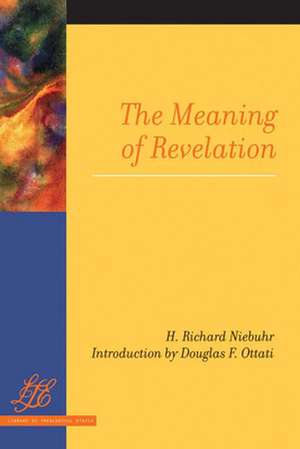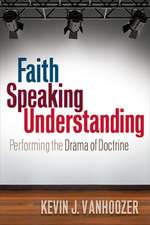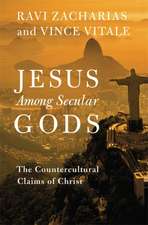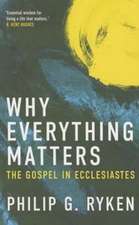The Meaning of Revelation: Biblical Theology in the Form of a Commentary: Library of Theological Ethics
Autor H. Richard Niebuhren Limba Engleză Paperback – mar 2006
The Library of Theological Ethics series focuses on what it means to think theologically and ethically. It presents a selection of important and otherwise unavailable texts in easily accessible form. Volumes in this series will enable sustained dialogue with predecessors though reflection on classic works in the field.
Preț: 142.92 lei
Nou
Puncte Express: 214
Preț estimativ în valută:
27.35€ • 28.55$ • 22.63£
27.35€ • 28.55$ • 22.63£
Carte disponibilă
Livrare economică 14-28 martie
Preluare comenzi: 021 569.72.76
Specificații
ISBN-13: 9780664229986
ISBN-10: 0664229980
Pagini: 104
Dimensiuni: 151 x 229 x 11 mm
Greutate: 0.22 kg
Editura: Westminster John Knox Press
Seria Library of Theological Ethics
ISBN-10: 0664229980
Pagini: 104
Dimensiuni: 151 x 229 x 11 mm
Greutate: 0.22 kg
Editura: Westminster John Knox Press
Seria Library of Theological Ethics
Notă biografică
H. Richard Niebuhr (1894-1962) was a prominent twentieth-century American theologian. He was Sterling Professor of Theology and Christian Ethics at Yale University Divinity School in New Haven, Connecticut. He is known for his books The Responsible Self and Radical Monotheism and Western Culture.
Descriere
This reissue of a 20th century classic emphasizes an understanding of God's revelation that takes seriously both the Bible itself and modern ideas about the nature of history. Includes a new Foreword by Ottati, which sets Niebuhr's work in the context of his other writings and explores the significance of this book.

















